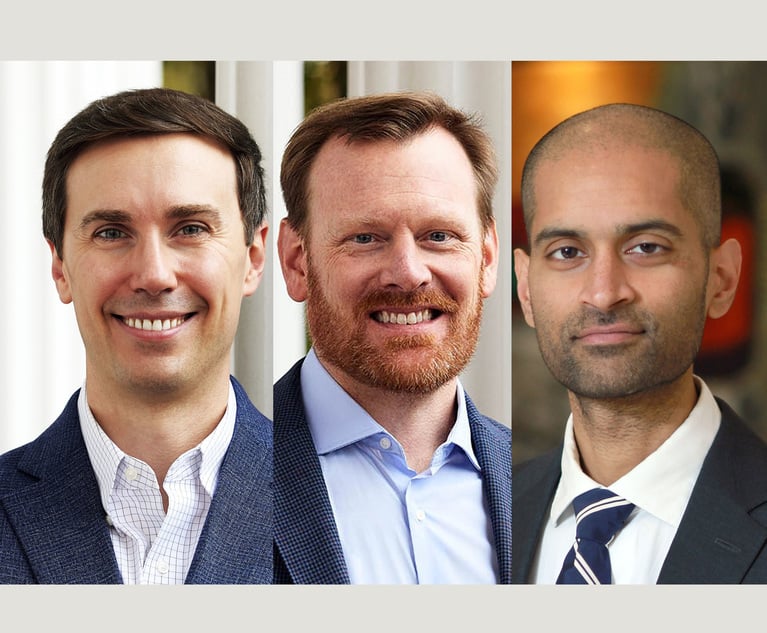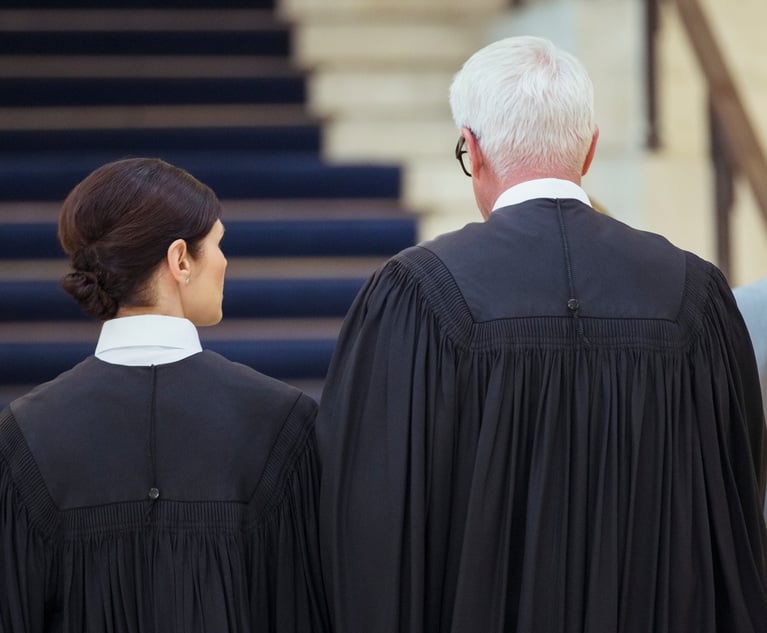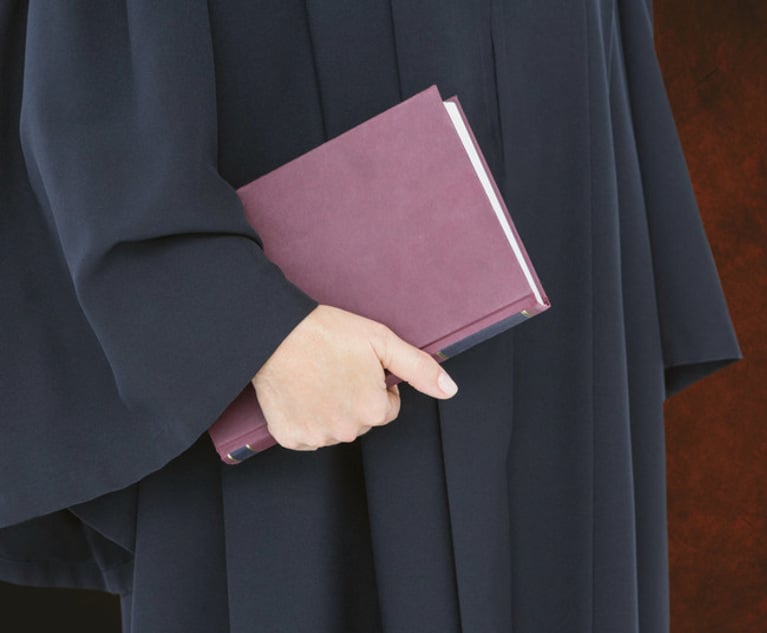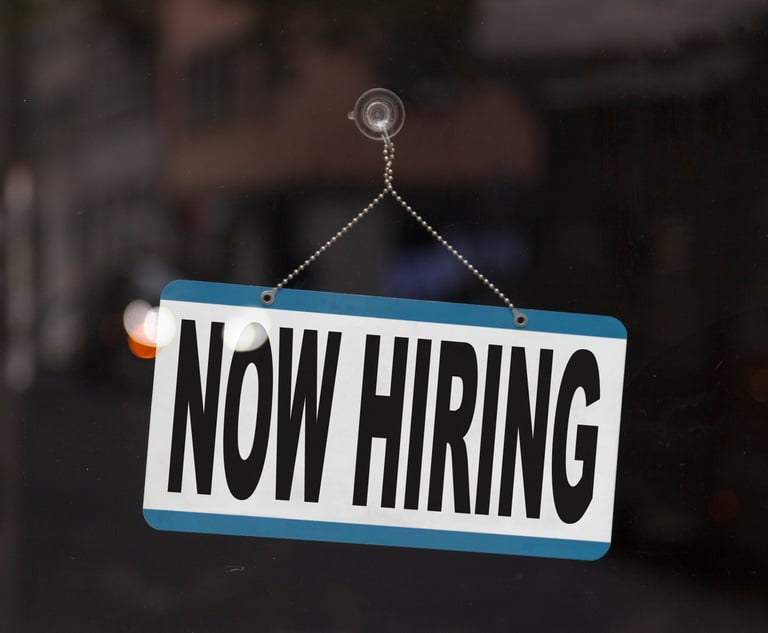 U.S. Rep. Doug Collins. (Photo: Diego M. Radzinschi/ALM)
U.S. Rep. Doug Collins. (Photo: Diego M. Radzinschi/ALM)Georgia Congressman Doug Collins Regrets Mueller Won't Testify Before Judiciary Committee
The Georgia Republican welcomes a change of topics for the House Committee, suggesting it look into border security and Chinese theft of intellectual property.
May 29, 2019 at 11:14 AM
5 minute read
The original version of this story was published on National Law Journal
U.S. Rep. Doug Collins, the ranking Republican member of the House Judiciary Committee, expressed regret Wednesday that former Special Counsel Robert Mueller III won't be testifying.
Moments before, Mueller offered his first public remarks on his two-year investigation into Russian interference in the 2016 election and obstruction of justice. He said his work was complete and his office was closing.
U.S. Rep. Jerrold Nadler of New York, the top Democrat on the House committee, has said Mueller expressed a willingness to testify before Congress but would prefer to speak behind closed doors to avoid a “political spectacle.”
Mueller on Wednesday expressed a reluctance to testify and said any public remarks would not go beyond the report issued by his office.
“I hope and expect this to be the only time that I will speak about this matter,” Mueller said. “I am making that decision myself — no one has told me whether I can or should testify to speak further about this matter.”
In a statement after Mueller's remarks, Collins said, “While I had hoped he would come before the committee and answer questions from lawmakers, Robert Mueller has led an extraordinary life of public service and is entitled to his life as a private citizen once again.”
Collins, representing Georgia's northeast corner, welcomed a change of subject for the Judiciary Committee, saying: “It is time to move on from the investigation and start focusing on real solutions for the American people, like fixing the crisis at the southern border and stopping China from stealing our intellectual property. I look forward to working with Chairman Nadler on these important initiatives.”
Citing Justice Department policy governing his investigation, Mueller said charging a sitting president with a crime was “not an option we could consider.”
“It would be unfair to potentially accuse somebody of a crime when there could be no court resolution of the actual charge,” Mueller said, speaking alone at a podium at Main Justice in Washington. “That was Justice Department policy. Those were the principles under which we operated. We would not reach a determination one way or the other whether the president committed a crime.”
He added, “We will not comment on any other conclusions or hypotheticals about the president.” Mueller declined to take questions after speaking for about 10 minutes.
The special counsel's office found no evidence Trump's campaign coordinated with Russia's efforts to sow conflict into the presidential election.
On the question of whether Trump obstructed the probe, Mueller's team identified 10 instances of potentially obstructive acts committed by the president. Those acts included Trump's efforts to convince the White House counsel at the time, Donald McGahn, and other subordinates to fire Mueller, and Trump's removal of James Comey as the FBI director.
Mueller's office did not draw a conclusion on whether Trump should be charged with obstruction of justice.
“As set forth in our report, after that investigation, if we had confidence that the president clearly did not commit a crime, we would have said that,” Mueller said Wednesday.
U.S. Attorney General William Barr and his then-deputy, Rod Rosenstein, concluded the identified acts did not amount to obstruction of justice. That decision fueled criticism from former federal prosecutors, who argued in a widely shared blog post that Trump would have faced “multiple felony charges” were he not president.
 U.S. Attorney General William Barr. Photo: Diego M. Radzinschi
U.S. Attorney General William Barr. Photo: Diego M. Radzinschi
Mueller's investigation resulted in several prosecutions of close Trump allies, including his former campaign chairman, Paul Manafort, who was convicted of charges tied to his lobbying work for the Russia-aligned government of Ukraine. Trump's former national security adviser, Michael Flynn, is awaiting sentencing in Washington on a charge of lying to federal agents. Several other Mueller-related prosecutions are pending, including a case against longtime Trump aide Roger Stone.
Mueller's 448-page report on the Russia investigation has become a wedge between the Justice Department and House Democrats, who've demanded access to the unredacted copy of the document. The Justice Department offered to allow a select group of lawmakers and their staffs to review what Assistant Attorney General Stephen Boyd has described as “98.5 percent” of the report, with only grand jury-related information redacted. But Democrats have refused to back down.
Mueller, who left his partnership at Wilmer Cutler Pickering Hale and Dorr after being named special counsel in 2017, has not publicly announced his next steps. He said Wednesday he is returning to “private life” but did not say where.
This content has been archived. It is available through our partners, LexisNexis® and Bloomberg Law.
To view this content, please continue to their sites.
Not a Lexis Subscriber?
Subscribe Now
Not a Bloomberg Law Subscriber?
Subscribe Now
NOT FOR REPRINT
© 2025 ALM Global, LLC, All Rights Reserved. Request academic re-use from www.copyright.com. All other uses, submit a request to [email protected]. For more information visit Asset & Logo Licensing.
You Might Like
View All
Spalding Jurors Return $12M Verdict Against State Farm Insurance Client
10 minute read

Trending Stories
- 1H&R Block Accused of Negligence in Data Breach Suit
- 2Apple Disputes 'Efforts to Manufacture' Imaging Sensor Claims Against iPhone 15 Technology
- 3Following Treasury Hack, Do Federal Cybersecurity Standards Need an Update?
- 4Former Capital One Deputy GC Takes Legal Reins of AIG Spinoff
- 5‘Old Home Week’: Justice Breyer Hears Challenge to Cruise Ship Ordinance in 1st Circuit
Who Got The Work
Michael G. Bongiorno, Andrew Scott Dulberg and Elizabeth E. Driscoll from Wilmer Cutler Pickering Hale and Dorr have stepped in to represent Symbotic Inc., an A.I.-enabled technology platform that focuses on increasing supply chain efficiency, and other defendants in a pending shareholder derivative lawsuit. The case, filed Oct. 2 in Massachusetts District Court by the Brown Law Firm on behalf of Stephen Austen, accuses certain officers and directors of misleading investors in regard to Symbotic's potential for margin growth by failing to disclose that the company was not equipped to timely deploy its systems or manage expenses through project delays. The case, assigned to U.S. District Judge Nathaniel M. Gorton, is 1:24-cv-12522, Austen v. Cohen et al.
Who Got The Work
Edmund Polubinski and Marie Killmond of Davis Polk & Wardwell have entered appearances for data platform software development company MongoDB and other defendants in a pending shareholder derivative lawsuit. The action, filed Oct. 7 in New York Southern District Court by the Brown Law Firm, accuses the company's directors and/or officers of falsely expressing confidence in the company’s restructuring of its sales incentive plan and downplaying the severity of decreases in its upfront commitments. The case is 1:24-cv-07594, Roy v. Ittycheria et al.
Who Got The Work
Amy O. Bruchs and Kurt F. Ellison of Michael Best & Friedrich have entered appearances for Epic Systems Corp. in a pending employment discrimination lawsuit. The suit was filed Sept. 7 in Wisconsin Western District Court by Levine Eisberner LLC and Siri & Glimstad on behalf of a project manager who claims that he was wrongfully terminated after applying for a religious exemption to the defendant's COVID-19 vaccine mandate. The case, assigned to U.S. Magistrate Judge Anita Marie Boor, is 3:24-cv-00630, Secker, Nathan v. Epic Systems Corporation.
Who Got The Work
David X. Sullivan, Thomas J. Finn and Gregory A. Hall from McCarter & English have entered appearances for Sunrun Installation Services in a pending civil rights lawsuit. The complaint was filed Sept. 4 in Connecticut District Court by attorney Robert M. Berke on behalf of former employee George Edward Steins, who was arrested and charged with employing an unregistered home improvement salesperson. The complaint alleges that had Sunrun informed the Connecticut Department of Consumer Protection that the plaintiff's employment had ended in 2017 and that he no longer held Sunrun's home improvement contractor license, he would not have been hit with charges, which were dismissed in May 2024. The case, assigned to U.S. District Judge Jeffrey A. Meyer, is 3:24-cv-01423, Steins v. Sunrun, Inc. et al.
Who Got The Work
Greenberg Traurig shareholder Joshua L. Raskin has entered an appearance for boohoo.com UK Ltd. in a pending patent infringement lawsuit. The suit, filed Sept. 3 in Texas Eastern District Court by Rozier Hardt McDonough on behalf of Alto Dynamics, asserts five patents related to an online shopping platform. The case, assigned to U.S. District Judge Rodney Gilstrap, is 2:24-cv-00719, Alto Dynamics, LLC v. boohoo.com UK Limited.
Featured Firms
Law Offices of Gary Martin Hays & Associates, P.C.
(470) 294-1674
Law Offices of Mark E. Salomone
(857) 444-6468
Smith & Hassler
(713) 739-1250







